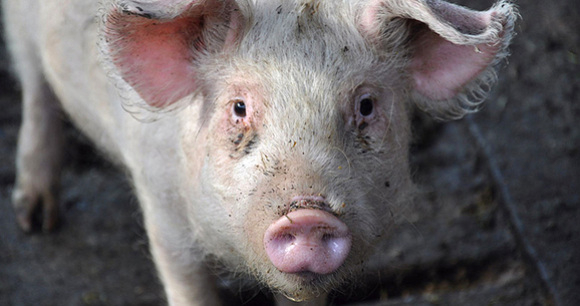
Washington, DC—The US House Committee on Agriculture will weigh in Thursday on the long-awaited, 942-page Farm Bill, a massive legislative package—reauthorized every five years or so—that serves as a key driver of food and agriculture policy in the United States and touches on a number of other policy areas affecting animal welfare.
The House version of the Farm Bill, released last week, includes one of the highest priorities of the Animal Welfare Institute (AWI)—reauthorizing the Emergency and Transitional Pet Shelter and Housing Assistance Grant Program so that domestic violence service providers can better assist survivors who have companion animals.
The draft bill as a whole, however, represents a huge missed opportunity for improving animal welfare and, in some cases, significantly undermines animal protection goals. Among the most damaging provisions:
- Overturning the will of millions of voters in order to block state laws such as California’s Proposition 12 and Massachusetts’ Question 3, which prohibit the sale of animal products produced from animals subjected to extreme confinement, such as gestation crates or veal crates. Last year, in a significant and historic victory for animal welfare, the US Supreme Court upheld Prop 12, but the House version of the Farm Bill threatens to nullify this victory and harm millions of animals by preventing states from setting higher welfare standards for products sold within their borders.
- Permitting the sale of uninspected meat from custom slaughterhouses, based on controversial language in the Processing Revival and Intrastate Meat Exemption (PRIME) Act. Custom slaughter refers to facilities that are not subject to continuous federal or state inspection; they typically serve hunters seeking to process carcasses or others who want meat for personal (i.e., noncommercial) use. According to AWI’s research, these facilities are among the worst slaughter plants for humane handling violations.
- Expanding the US Department of Agriculture’s Livestock Indemnity Program—which compensates livestock producers for animal injuries and deaths that occur during natural disasters and extreme weather events—without mandating that operations have disaster preparedness plans. This requirement was included in the Emergency Disaster Preparedness for Farm Animals Act, which was introduced earlier this year in the House.
- Changing the law governing live dog imports into the United States, hindering rescue organizations’ efforts to save dogs from horrible conditions in other countries (due to natural disasters, war, or overall poor standards of care), and provide them with necessary medical care and the chance to find their forever homes.
- Providing subsidies for the mink fur industry, a sector that has been in steep decline for years and poses a severe threat to public health. The draft bill would earmark taxpayer dollars for the mink industry to develop and expand into international markets, even though mink on fur farms incubate diseases such as COVID-19 and avian influenza, creating the perfect conditions for new variants to jump to humans—with potentially devastating results.
- Undermining two bedrock conservation laws—the National Environmental Policy Act (NEPA) and the Endangered Species Act (ESA)—by curtailing environmental reviews, public input, and expert consultations on certain forest management projects. Such a move would allow these projects to move forward before their negative impacts on imperiled species and habitat are known.
- Codifying the USDA’s reliance on “unrelieved suffering” as the standard that dogs must endure before the department even considers immediately confiscating them from substandard dealer facilities. This unreasonable and inhumane level of suffering is at odds with the definition of suffering in the Animal Welfare Act and suggests that immediate confiscation would not even be considered for other AWA-protected animals in similarly dire situations.
- Failing to include a prohibition on the slaughter of horses for human consumption, despite overwhelming bipartisan support for the Save America’s Forgotten Equines (SAFE) Act. The SAFE Act, which currently has 223 cosponsors in the House, directly builds on language included in the last Farm Bill, which prohibited the slaughter and trade of dogs and cats in the United States. The current version of the Farm Bill does not extend these same protections to equines.
“The Farm Bill presents an important opportunity to eliminate severe public health threats, cut tax dollar waste, and seek redress for unimaginable animal suffering,” said Nancy Blaney, AWI’s director of Government Affairs. “Sadly, much of this draft language rewards the biggest industry offenders; it should be called the Harm Bill, not the Farm Bill.”
Marjorie Fishman, Animal Welfare Institute
(202) 446-2128, [email protected]
The Animal Welfare Institute is a nonprofit charitable organization founded in 1951 and dedicated to reducing animal suffering caused by people. AWI engages policymakers, scientists, industry, and the public to achieve better treatment of animals everywhere: in agriculture, in commerce, in our communities, in research, and in the wild. Follow us on Facebook, X (formerly Twitter), and Instagram for updates and other important animal protection news.